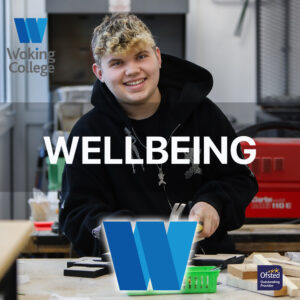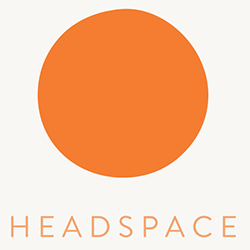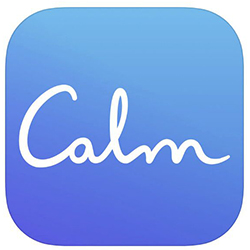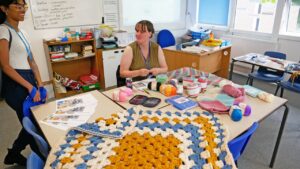Wellbeing
Wellbeing
For more information please call or send us an e-mail.
Telephone: 01483 761 036
Email: wokingcoll@woking.ac.uk
 At Woking College, our students’ wellbeing is our top priority as we know that feeling physically and emotionally safe and nurtured is essential for young people to learn, excel, and above all enjoy their time in and outside of college. We pride ourselves on creating an environment where all students can access support from our pastoral team in the moment that they need it, and can come out of these conversations feeling truly heard and valued.
At Woking College, our students’ wellbeing is our top priority as we know that feeling physically and emotionally safe and nurtured is essential for young people to learn, excel, and above all enjoy their time in and outside of college. We pride ourselves on creating an environment where all students can access support from our pastoral team in the moment that they need it, and can come out of these conversations feeling truly heard and valued.
Some of the initiatives which support our students wellbeing include.
Health Assured Student Assistance Programme:
In addition to the wellbeing support available at Woking College, we are also partners with:-
Health Assured; a 24/7 support helpline
Staffed by trained counsellors meaning you can access wellbeing and welfare support at any time day or night, and throughout the holidays.
Call anytime to speak to a counsellor. It’s confidential, and it’s free. Call 0800 028 3766
College Counselling
Counselling is free and available to all those who attend Woking College, you can either refer yourself or be referred for an agreed number of sessions.
Counselling is highly in demand, therefore, we ask that if you have decided to accept your appointments, you keep them, and let us know as soon as you can if you are unable to come along. If you change your mind, that is OK too, just drop us an email to let us know your decision, we won’t ask for a reason, we will accept and respect your decision, and you can always return.
1
Referral
Refer yourself or ask a member of staff to do this for you via email to tsc@woking.ac.uk or drop by the office.
2
Assessment Session
We will email you to come for a chat to find out how we can support you and answer any questions you may have about our counselling service.
3
Waiting list
Then, if you agree, you will be added to the waiting list for regular weekly sessions.
4
Weekly sessions
Up to 9 regular sessions 50 minutes per session, same time and day each week.
Specific Health and Wellbeing Support Groups
The College runs various support groups including mindfulness courses and bereavement and anxiety support groups. The Learning Support department also run small supportive chill out groups for those who want some quiet, down time.
Young Carers Co-ordinator
If you’ve been highlighted as a young carer our Young Carers Co-ordinator will get in touch to offer additional College support and assist you with accessing external support.
Peer Mentors
Students have access to trained peer support mentors who they can speak to about any concerns including their mental health and wellbeing.
Therapy Dog Visits
We have regular visits from a trained therapy dog where students can benefit from the power of connection with pets.
Drop-in Wellbeing Sessions
Students are invited to enjoy pop-up events in the canteen run by the Enrichment Co-ordinator. These activities can include all sorts of activities such as candle making, creating bath bombs and cooking up culinary treats all to enhance relaxation and communication.
Wellbeing Tips
A useful approach when thinking about wellbeing is to imagine your wellbeing as a bank account: every time you take care of yourself or others, you are making deposits into your wellbeing account. If too many withdrawals are made – through stressful situations or lack of self-care – then we start to head towards an ‘overdraft’ situation that could lead to mental or physical burnout. We can help to avoid this by learning and locking in our wellbeing habits on an ongoing basis. This is a personal thing that varies from person to person, but here are five key areas you can focus on:
Social
Think about the different groups you belong to and how different people make you feel. If life is feeling overwhelming, try to spend time with the people who help you to feel grounded and supported. The same applies to social media – if it’s not making you feel great, give it some space.
Relaxation
give yourself time each day to take stock, and not have to ‘do’ anything. This could be through breathing exercises, mindfulness, or having a bedtime routine that helps you to wind down before going to sleep.
Self-awareness
identify your own stress symptoms and triggers, so that you can recognise early when things are getting on top of you and prioritise your self-care. As humans we often direct towards negative thoughts towards ourselves, so take time to recognise when you do this, and ask yourself what you would say to a friend if they were feeling this way about themselves.
Physical
look after your body by eating a balanced diet, drinking water throughout the day and monitoring your intake of alcohol, nicotine and caffeine (as these can all increase our stress levels). Build in a regular routine of exercise as a way to look after your body and for a release of feel-good hormones.
Creativity
Creative activities can be used as a distraction but also activates the part of the brain that can calm our system. Music, art, writing, sewing, baking, and any other activity that helps to activate our imagination is helpful.
Students and their families can interact with our monthly “My Wellbeing Matters” theme on our new Instagram account @wokingcollegewellbeing where there is advice and information about wellbeing and events that are happening in college in relation to each month’s theme. Throughout the year we will be offering a variety of creative activities and resources to open up a discussion about different aspects of wellbeing and to build our students’ confidence, resilience and enthusiasm to live life to the full.
Student Health Guide (SHG)
Apps for Wellbeing and Mindfulness
There are a variety of apps you can use to help with sleep, relaxation and mindfulness.

Headpace – is a meditation app

Sleep Cycle – analyses your sleep and wakes you up at the most perfect time, feeling rested.

Calm – Free app for meditation and sleep.
Mental Health Advice and Support
Everyone will find their mental health fluctuates and sometimes we all need some additional support. This does not only have to come from a GP or another qualified mental health provider; there are lots of organisations that offer 24-hour support through chats, telephone line, drop-ins and well-stocked websites. The following are just some of the ones you may find helpful.
General mental health
Depression
Self-harm
www.carmharm.co.uk (provides tasks to help you resist or manage the urge to self-harm)










